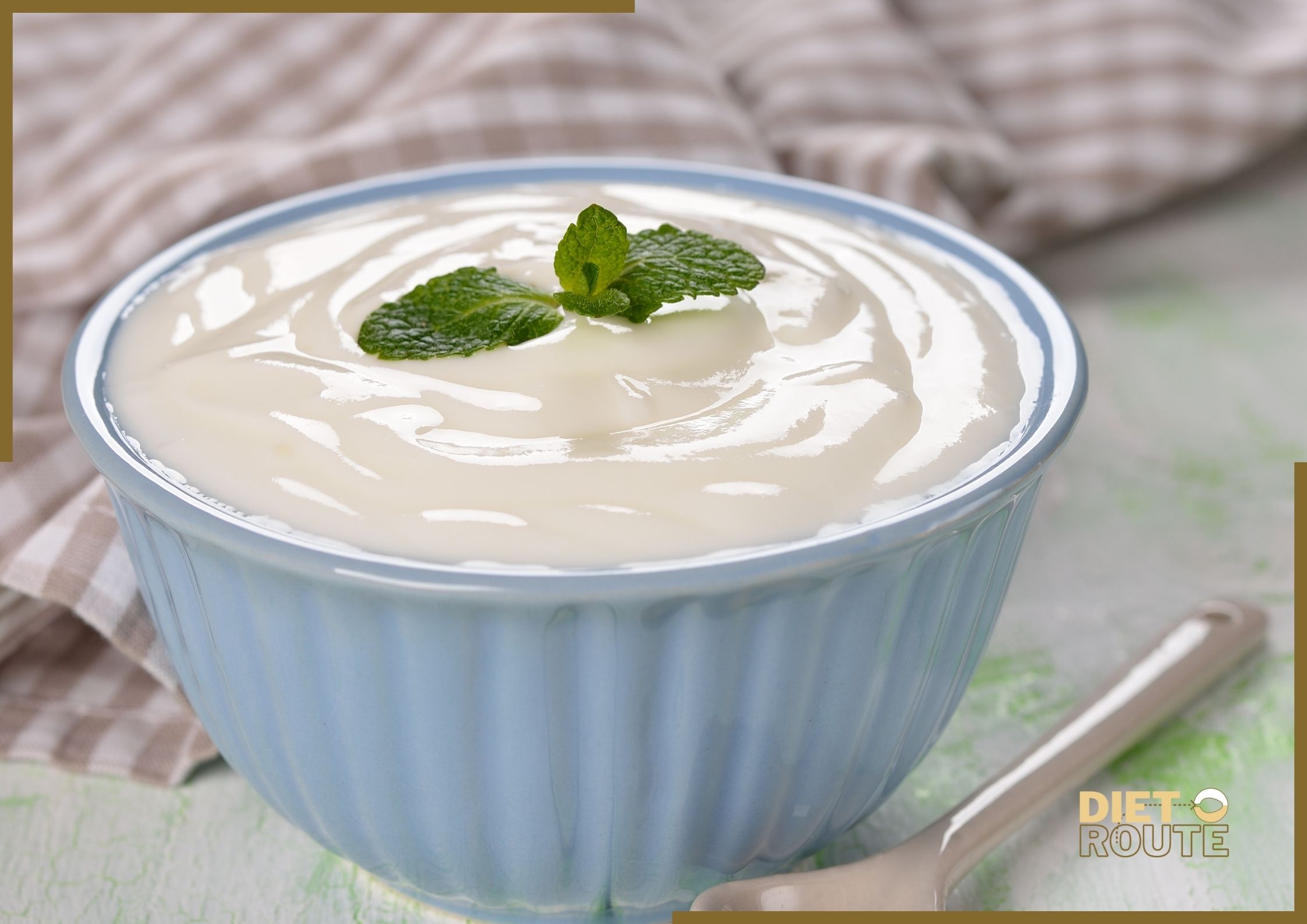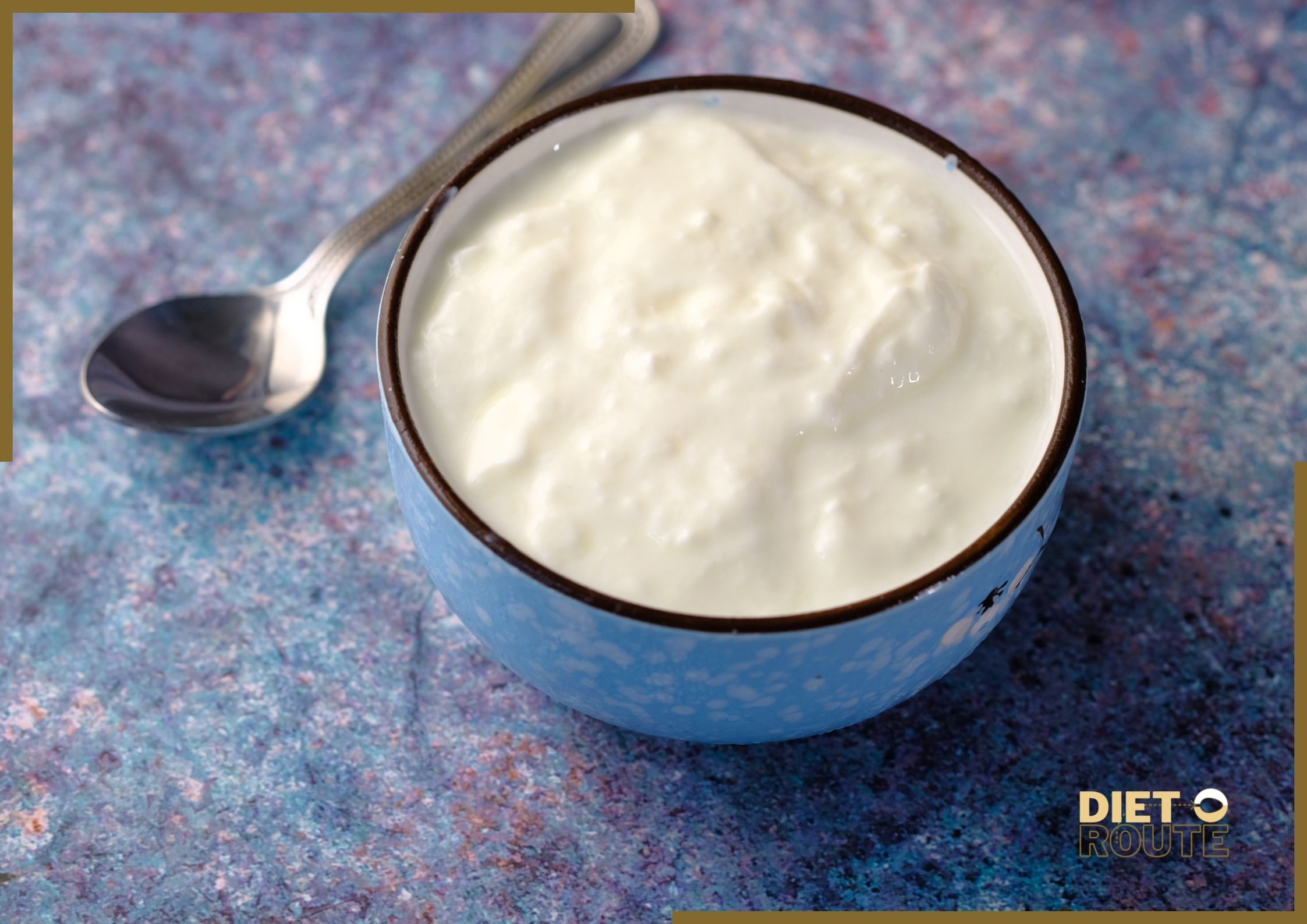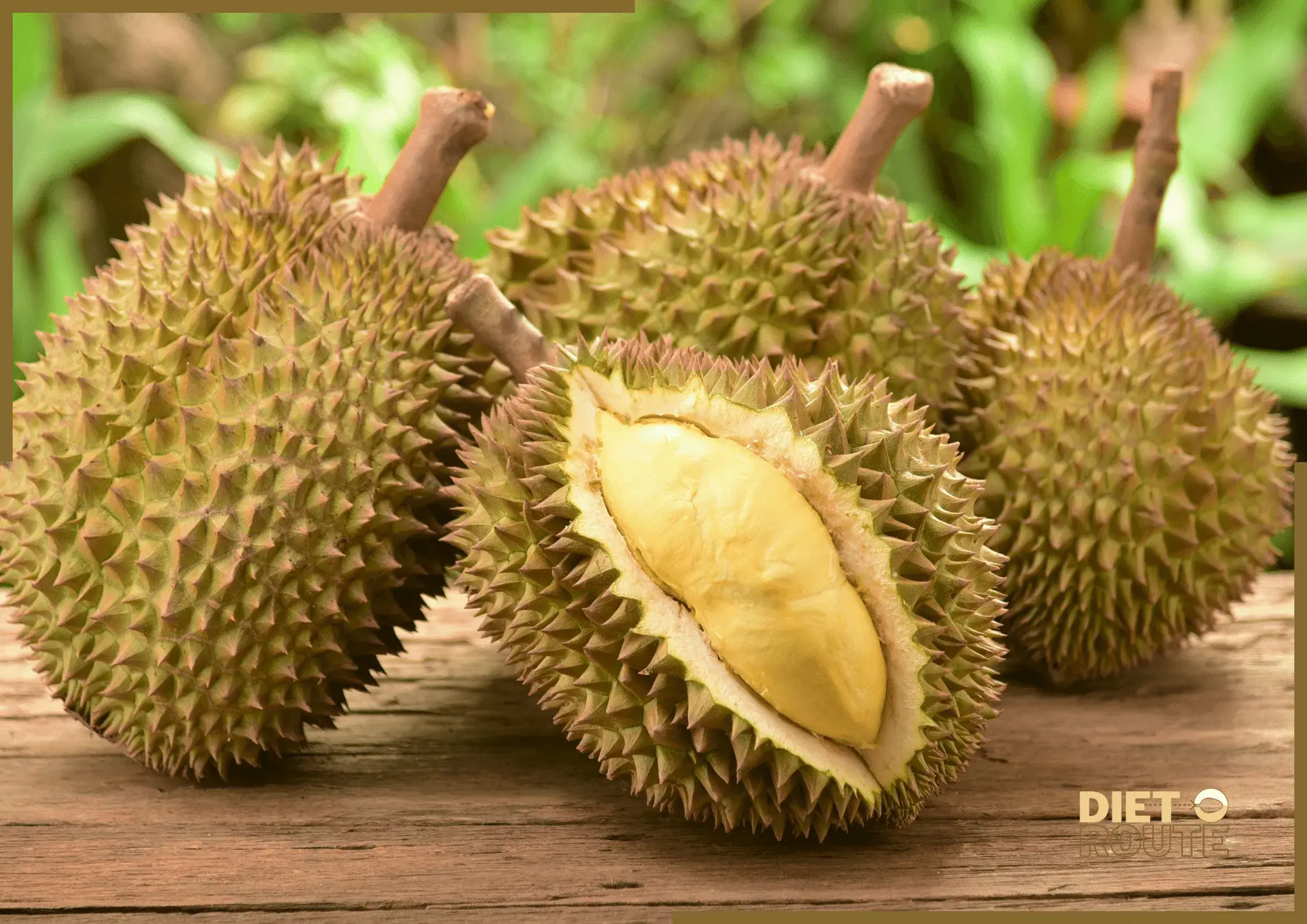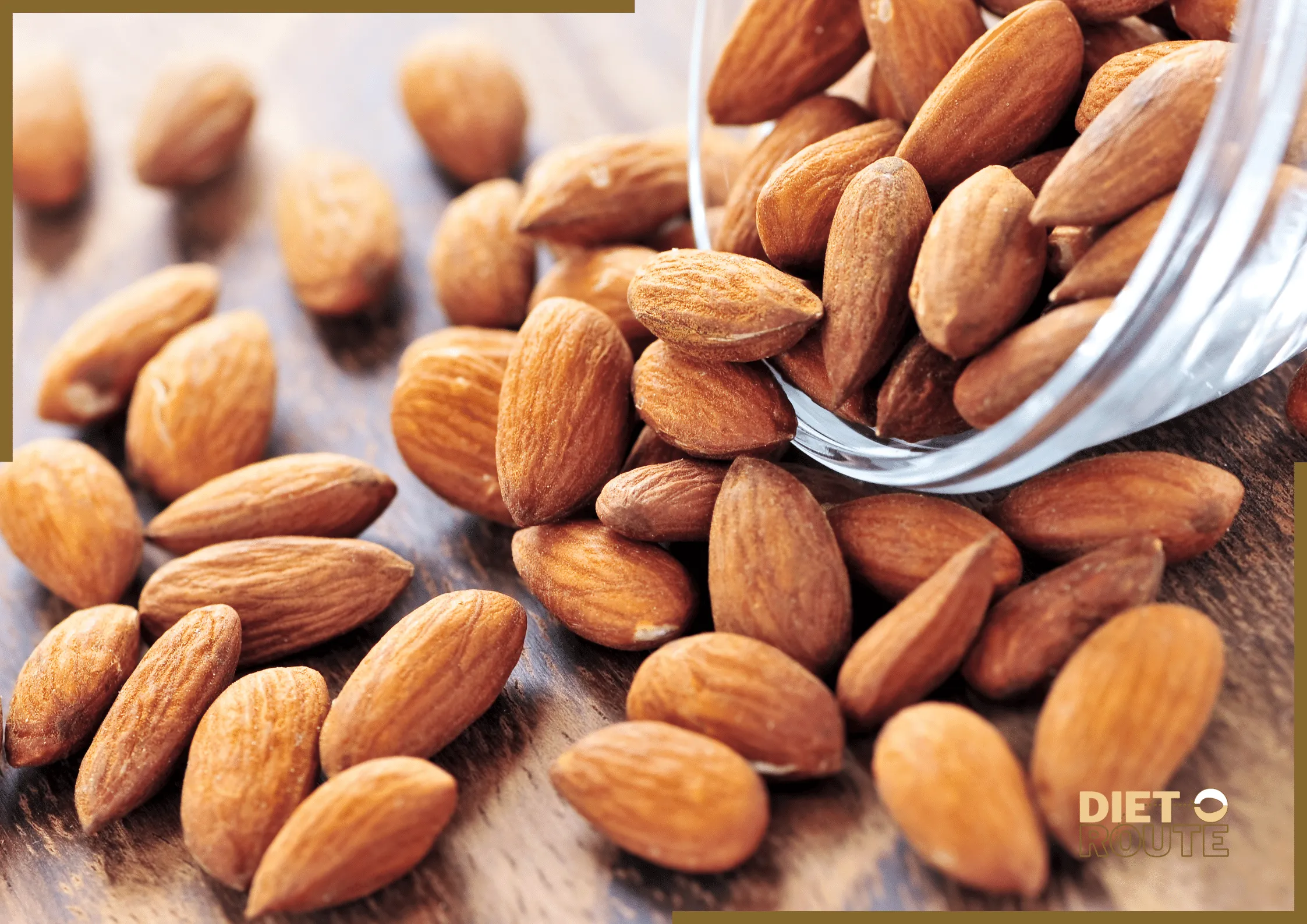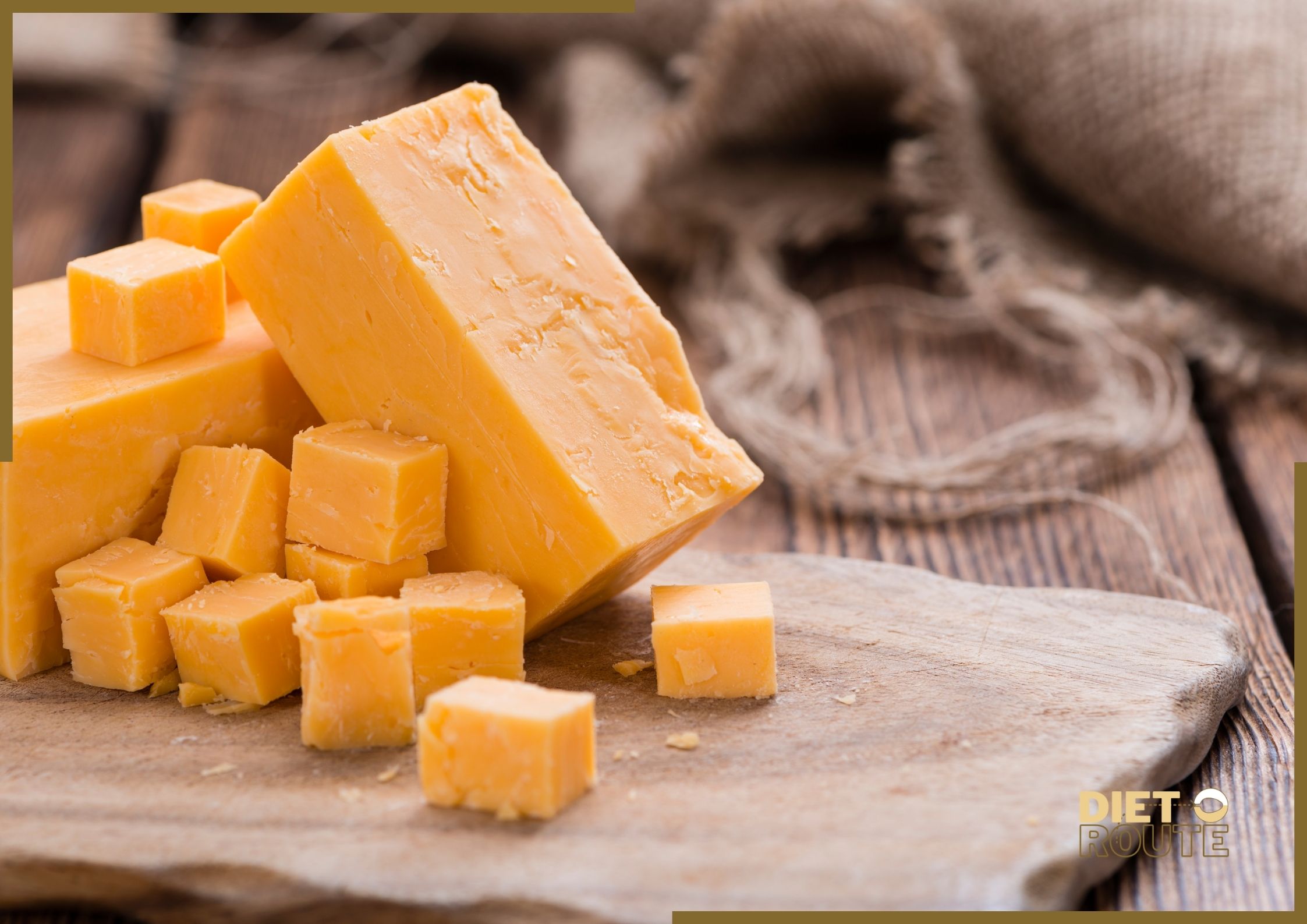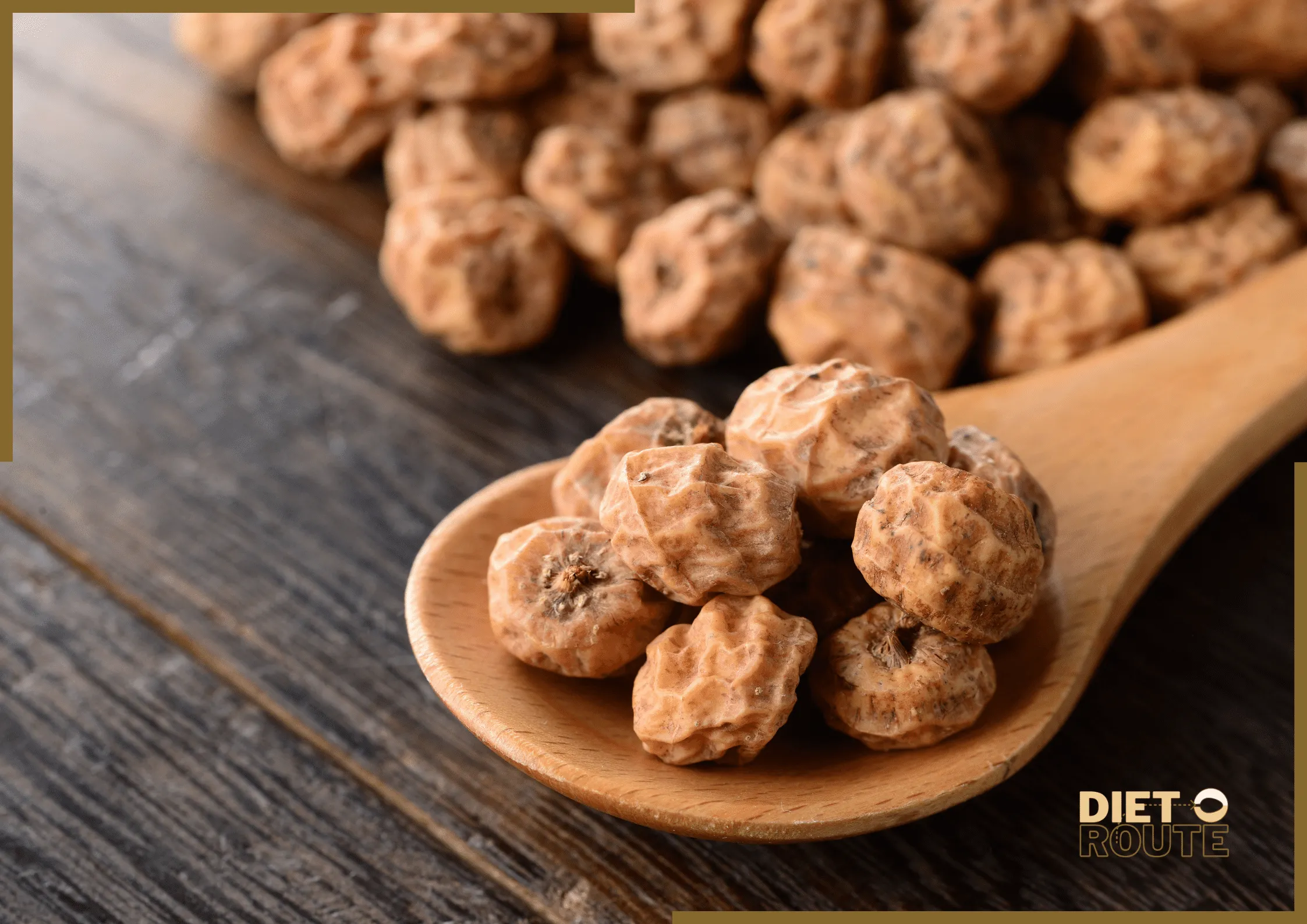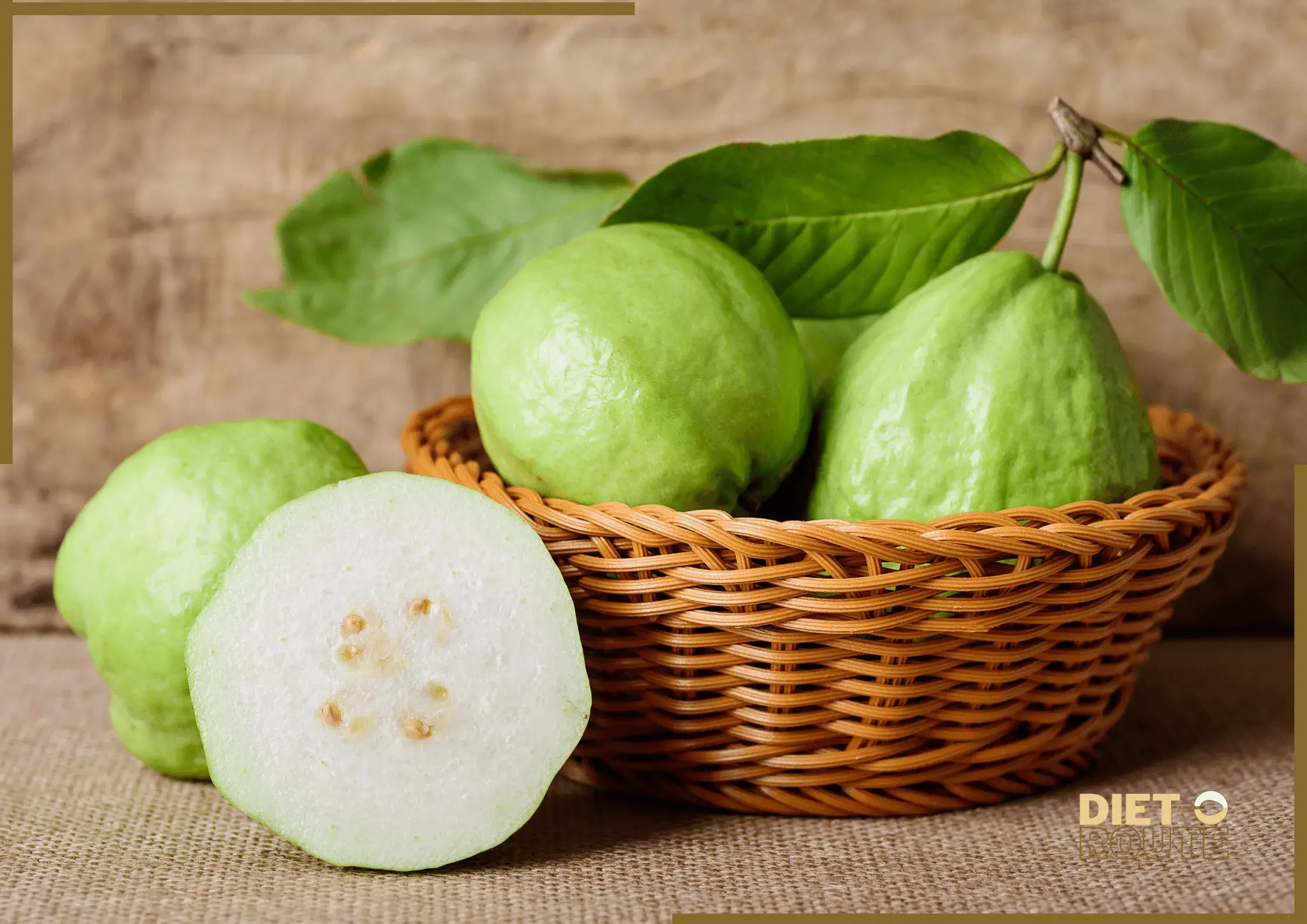Table of Contents
Introduction
Non-fat yogurt, also called fat-free yogurt, is a popular option for people seeking a low-fat dairy product that still has all the benefits of yogurt. In this article, we’ll look at the nutrients content, talk about its pros and cons, answer some of the most common questions about it, and end with some valuable information about its role in a healthy diet.
Nutritional Value Approximately 100g
The values provided are approximate can vary depending on the size and quality.
| Nutrient | Amount Per Serving | % Daily Value |
|---|---|---|
| Calories | 90 | 4% |
| Total Fat | 0g | 0% |
| Cholesterol | 5mg | 2% |
| Sodium | 110mg | 5% |
| Total Carbohydrates | 16g | 6% |
| – Dietary Fiber | 0g | 0% |
| – Sugars | 15g | |
| Protein | 6g | 12% |
| Vitamin D | 0.5mcg | 3% |
| Calcium | 250mg | 20% |
| Iron | 0.2mg | 1% |
| Potassium | 380mg | 8% |
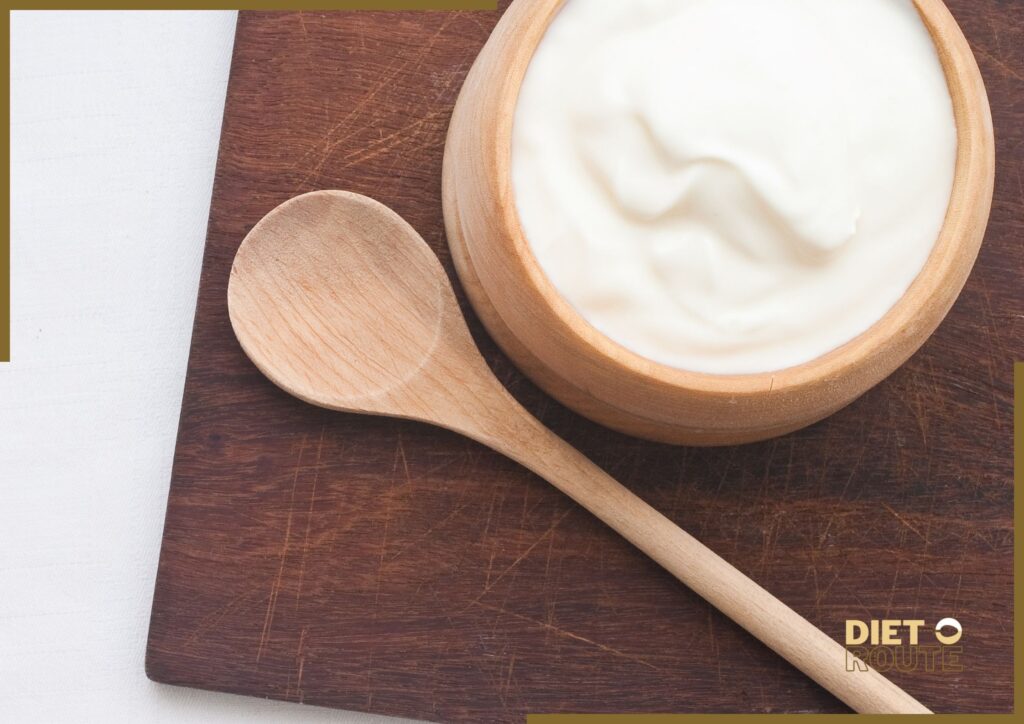
Pros
1. Low in fat:
It is almost fat-free, making it a great option for individuals who want to eat less fat overall.
2. High in Protein:
It is a good source of protein, which is important for building and repairing muscles and for your general health.
3. Rich in calcium:
It has a lot of calcium, which helps keep bones and teeth strong.
4. Digestive Health:
It’s good for your digestive system. Some non-fat yogurts have live and active cultures, which can help you digest food well and keep your gut healthy.
Cons
1. Reduced Creaminess:
It may be a little bit lighter and not as creamy as full-fat yogurt.
2. Added sugars:
Some may have sugars added to them to make them taste better. It’s important to read the label and choose choices with few added sugars or plain non-fat yogurt.
Frequently Asked Questions (FAQ)
1. When compared to full-fat yogurt, is non-fat yogurt a better option?
For individuals seeking a low – fat dairy option, non-fat yogurt is a healthier option. But the choice between non-fat yogurt and full-fat yogurt relies on the needs and tastes of each person.
2. Can lactose-intolerant individuals eat non-fat yogurt?
Individuals with lactose intolerance may have trouble with consuming this yogurt, because it may still contain lactose. You could try options that don’t have lactose or yogurt that doesn’t come from dairy.
3. Is non-fat yogurt a good way to lose weight?
As a low fat and protein-rich snack option, non-fat yogurt can be part of a weight management plan. But general calorie intake and balance are still important for managing weight.
4. Does non-fat yogurt have probiotics?
Some of these yogurts have probiotics in them, but it depends on the brand and how the yogurt was made. Look for goods that say they have live and active cultures on the label.
5. Can you use non-fat yogurt in cooking and baking?
It can be used in a wide range of cooking and baking recipes because it adds moisture and a tangy taste.
6.Can yogurt without fat help with digestion?
A good gut microbiome and digestion can be supported by non-fat yogurt with live and active cultures.
7. Can kids eat yogurt that doesn’t have fat?
It can be a healthy option for kids, but it’s important to think about their overall dietary needs and talk to a health professional.
8. Should Individuals with diabetes consume non-fat yogurt ?
A diet that’s good for people with diabetes can include non-fat yogurt, but it’s important to look at the total carbohydrate content and choose choices with no added sugars.
9. Can non-fat yogurt be a part of a vegetarian or vegan diet?
This yogurt made from dairy is not good for a vegan diet. For individuals who follow a low or vegan diet, there are non-dairy alternatives available.
10. How can I eat non-fat yogurt every day?
You can eat it by itself as a snack, mix it with fruit and granola for a healthy breakfast, or use it as a base for smoothies, dressings, and healthy treats.
In a Nut Shell
For individuals looking to add dairy to their diet, non-fat yogurt offers a low fat and nutrient-rich option. It is a good source of protein and calcium, and it has the added bonus of being low in saturated fat. You can make an informed choice about whether or not to add it to your daily routine if you know what its nutritional content is, what its pros and cons are. As part of a balanced and healthy lifestyle, you can enjoy the thick goodness of this yogurt and get the health benefits it offers.
